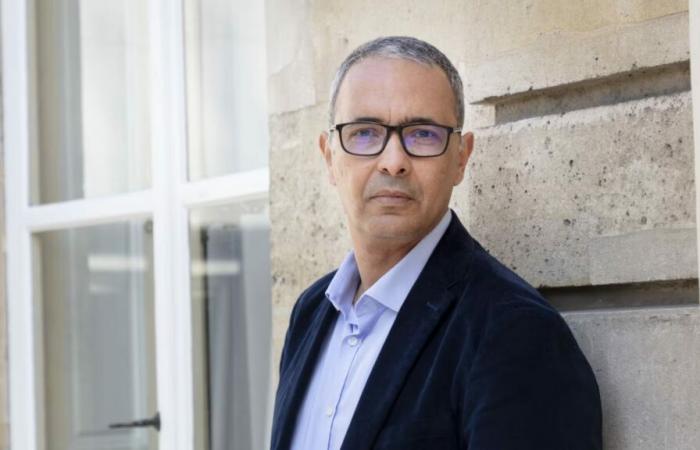A subject that must be kept quiet
From the 1990s to the 2000s, the Algerian civil war was a non-issue. It is possible that Houris never be on the shelves of booksellers across the country. A law – cited in the spotlight – prevents us from talking about this war which would have caused, in Algeria, between 150,000 and 250,000 deaths. Deaths about which it would take so many books to speak correctly.
We can therefore do nothing more monstrous than forbidding people to talk about the war. Fortunately, there is fiction. A fiction that makes this book important.
“I speak and as soon as I speak, the road chatters through me. »
17 centimeters. This is the size of the scar that Aube, the main character of this novel, has, a victim of the war when she was five years old. An obvious metaphor for silence, which is coupled with a very symbolic language on the part of the author, which he puts at the service of this poignant story.
A stock
Buy on Fnac.com
Aube is a young woman who works in a beauty salon. When she was a child, she survived a slit throat, while her sister, who was by her side, did not experience the same fate. Aube is the only survivor, she closed her eyes when her sister was killed. Through her inner voice, guilt shines: why did she survive?
Aube is pregnant, and in this interior monologue, she begins to address this child that she may not have. A woman's inner voice, as a tribute to the universality of literature; but Kamel Daoud obviously goes further.
Indeed, by taking the voice of a woman who is expecting a child (even if other voices are raised in parallel), he highlights everything that the thought of death represents when one is about to give the life. How can we think about this death when we have seen it so closely? A Houri is a virgin from paradise. A woman who, deep down, does not exist, and who Aube's inner voice tries to reclaim.
“I didn’t need to shout. Because, my Houri, the inner tongue knows how to speak to the enemy better than the outer tongue with its limited words. »
The inner voice of a survivor
Through this survivor's story, we understand that, in this war in question, this dark decade which wears its color well, the stakes were multiple. Taking the voice of a woman, for Kamel Daoud, also meant understanding that, for them, war infiltrates every corner of their lives. Talking about it when we are speaking to a life that can be born is all the more impactful.
“My little Houri, what would you come to do with a mother like me, in a country that doesn’t want us women, or only at night? »
Through her inner monologue, her conversation with the one she carries within, Aube also tells us how victims are prevented from being recognized as such. Returning to her village, following the traces of her past, she realizes the violence of this. People don't want to remember. You don't have to remember. It's forbidden. Memory is penalized.
“What about us, the survivors of the Civil War? Nothing. We are not given a single national date, not a single memory to hang around our necks. We are barely allowed any scars. »
Numbers and fiction
It took 400 pages divided into three parts for Kamel Daoud to tell the intimate memory of a country that refuses to remember.
This memory is that of this civil war otherwise called the black decade. Between the 1990s and the 2000s, the author was a journalist and witnessed this. We understand by reading this novel, this democratic necessity that is journalistic writing will never replace that of the writer to bring to life the figures of the first.
By putting fiction into tragedy, Kamel Daoud makes it possible to manage the country's memory, to place at the center of the table the dead forgotten by their own nation. It also involves scenes that seem impossible to invent, like that of the gynecologist. Sometimes telling the improbable seems necessary to unravel. This book is the perfect example.
“The fact is that, you see, a memory is always written on water, sand, materials that change and flee. »
Kamel Daoud's language is round, poetic and corresponds to what we expect from beauty: wealth, violence, and an external language that does not say everything. Beyond collecting a thought from the horror, the style tries to save it. Because it is indeed a novel, which makes us feel the injustice, the difficulty of being a woman in Algeria in the light of these events. Houris is not an essay, it does not present figures. It is a book of feelings, which questions as much as it makes suffering universal.
Because we know: we never escape our times.
HourisKamel Daoud, Gallimard, August 2024, 416 pages, €23






